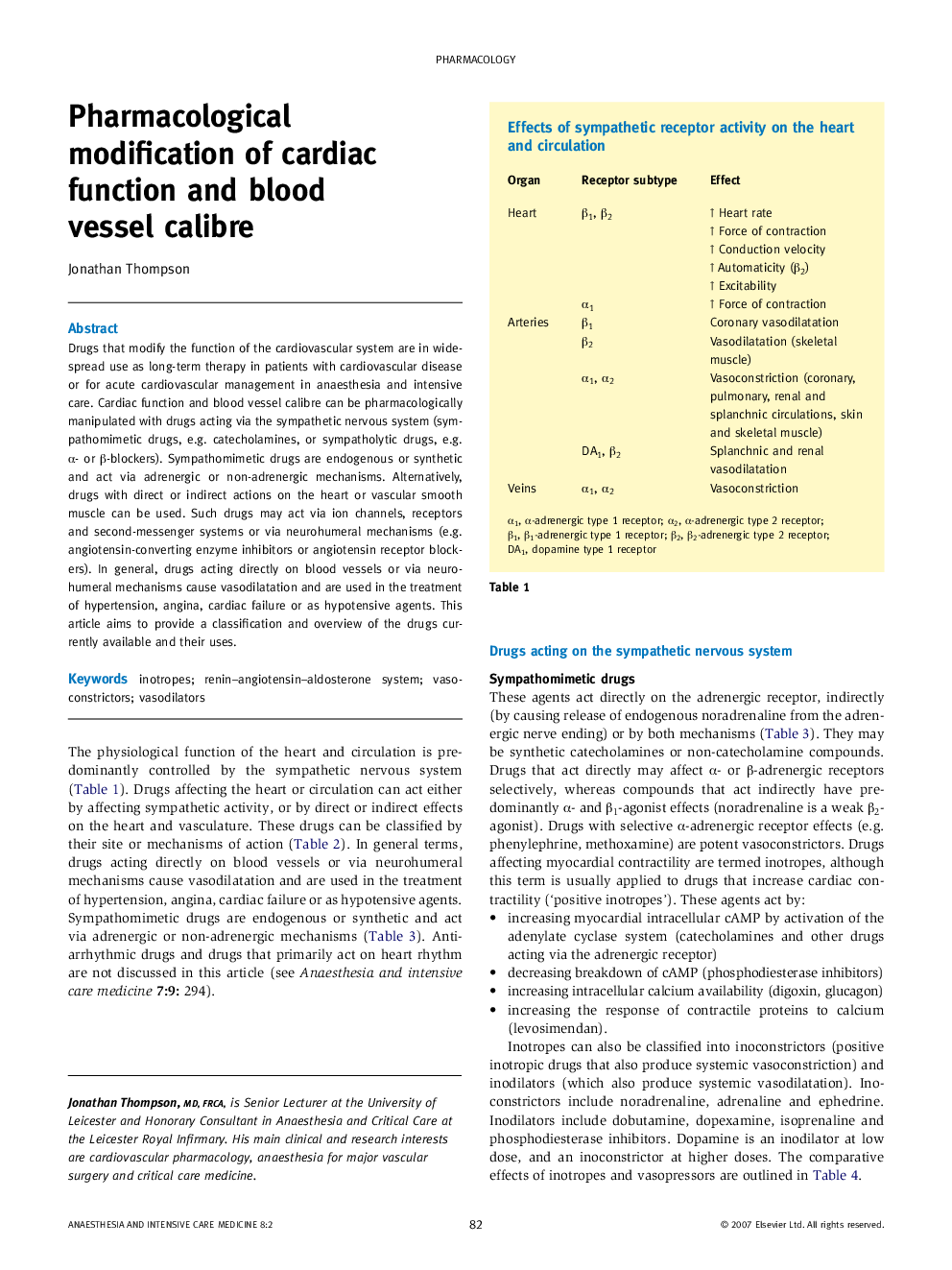| Article ID | Journal | Published Year | Pages | File Type |
|---|---|---|---|---|
| 2743910 | Anaesthesia & Intensive Care Medicine | 2007 | 6 Pages |
Drugs that modify the function of the cardiovascular system are in widespread use as long-term therapy in patients with cardiovascular disease or for acute cardiovascular management in anaesthesia and intensive care. Cardiac function and blood vessel calibre can be pharmacologically manipulated with drugs acting via the sympathetic nervous system (sympathomimetic drugs, e.g. catecholamines, or sympatholytic drugs, e.g. α- or β-blockers). Sympathomimetic drugs are endogenous or synthetic and act via adrenergic or non-adrenergic mechanisms. Alternatively, drugs with direct or indirect actions on the heart or vascular smooth muscle can be used. Such drugs may act via ion channels, receptors and second-messenger systems or via neurohumeral mechanisms (e.g. angiotensin-converting enzyme inhibitors or angiotensin receptor blockers). In general, drugs acting directly on blood vessels or via neurohumeral mechanisms cause vasodilatation and are used in the treatment of hypertension, angina, cardiac failure or as hypotensive agents. This article aims to provide a classification and overview of the drugs currently available and their uses.
